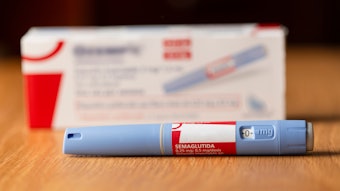
Twelve residents and medical students each received a one-year, $50,000 National Psoriasis Foundation (NPF) fellowship. The fellowships pair an early-career doctor with an established psoriatic disease researcher and are awarded in an effort to increase the number of scientists studying and treating psoriatic disease and encourage promising doctors to dedicate their careers to the study of psoriasis and psoriatic arthritis as physician-researchers.
The NPF Medical Dermatology Fellows for 2014 are:
Dena Elkeeb, MD, of University of Utah, for a pediatric study group within the Utah Psoriasis Initiative to assess the impact of systemic corticosteroids on physical characteristics of psoriasis, its severity and the patient's overall health.
Aleksandra Florek, MD, of University of Colorado Denver, for study on the epidemiology of psoriatic disease and related health risks, or comorbidities, and issues related to treating psoriasis, such as cost and effectiveness.
The NPF Amgen Medical Dermatology Fellowships, supported by a grant from Amgen, are:
Zelma Chiesa Fuxench, MD, of the University Of Pennsylvania Perelman School Of Medicine, for research to determine risks of major cardiovascular events in people with psoriasis and whether treating with the drug Humira (adalimumab) improves vascular inflammation. She will also study the effect of certain psoriasis treatments on skin cancer risk.
Jessica Donigan, MD, MPH, of Massachusetts General Hospital/Harvard Medical School, to evaluate why psoriasis plaques appear to be more stigmatizing than the lesions from other dermatologic diseases.
Rivka Friedland, MD, of Northwestern University, will examine the safety and efficacy of systemic medications and phototherapy on psoriasis in children.
Dario Kivelivetch, MD, of Baylor Research Institute, will evaluate cardiovascular risk in people with psoriasis using coronary artery calcium scores, which are special X-ray tests that can check for early-stage heart disease to determine its severity.
Davida Kornreich, MD, of the Icahn School of Medicine at Mt. Sinai, will analyze whether applying topicals in different orders changes their effectiveness. Kornreich will also study the safety and effectiveness of a holistic treatment in moderate to severe plaque psoriasis.
Marina Li, BS, a third-year medical student at Case Western Reserve University, will examine whether reducing skin inflammation also reduces blood clots and other signs of cardiovascular disease.
Forum Patel, MD , of the University of California, Davis, will identify if complex sugars called glycans are biomarkers, or biological signs, of psoriasis.
Scott Santilli, MD, of University Hospital Case Medical Center, will examine the effect of systemic, or whole-body, psoriasis therapy and its potential to regulate cardiovascular risk in people with psoriasis.
Aimee Two, MD, of University of California, San Diego, will investigate the role of dendritic cells, or pro-inflammatory cells in the immune system, in psoriasis and whether hyaluronidase, an enzyme that may cause dendritic cells to move away from the skin, may be effective at stopping inflammation.
Shaowei Wu, MD, PhD, of Brown University, will use data from two on-going national Nurses' Health Studies to investigate the relationship between pregnancy, menstruation, menopause and postmenopausal hormone use in the risk of psoriatic disease.
The Dr. Mark G. Lebwohl Medical Dermatology Fellowship recipient—named to recognize Dr. Mark Lebwohl, chairman emeritus of the National Psoriasis Foundation Medical Board and one of the world's leading psoriasis experts—is:
Emily Osier, MD, of Rady Children's Hospital, University of California, San Diego, to develop screening guidelines for comorbidities, or associated health risks, in children with psoriasis.
Image copyright istockphoto.com











